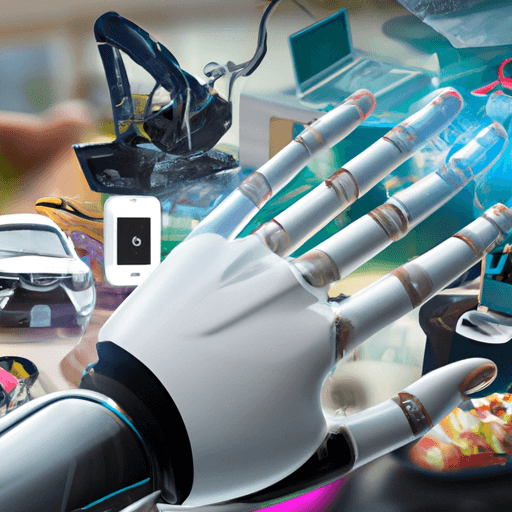The Impact of Artificial Intelligence on Everyday Life
Artificial Intelligence (AI) has revolutionarily transformed our day-to-day life. This technology, in essence, enables machines to simulate human intelligence processes, such as learning, reasoning, problem-solving, perception, and language understanding. Its impact spans multiple sectors, bringing benefits and risks alike.
The Positive Impacts of AI
Healthcare
AI is a game-changer in healthcare, enhancing diagnostic precision, medical imaging interpretation, predicting patient prognosis, and personalizing treatment. IBM’s Watson is a prominent example, being used for determining leukemia treatment plans more accurately in significantly less time than human doctors.
Education
AI in education brings personalized learning, prediction of student performance, and automation of administrative tasks. Tools like Carnegie Learning leverage AI to provide personalized math tutoring to students.
Transport
AI’s most pronounced impact can be seen in the rise of autonomous vehicles. Companies like Tesla and Alphabet's Waymo have revolutionized transport with self-driving cars, increasing safety by minimizing human errors.
Communication
Virtual assistant devices like Siri and Alexa are prominent examples of AI in communication. They can understand voice commands and perform tasks like setting reminders, playing music, and answering queries.
Entertainment
AI in entertainment is all about personalization. For instance, streaming services like Netflix use AI to analyze viewer preferences and make tailored recommendations.
The Negative Impacts of AI
Despite its many benefits, AI is not without its issues, mainly related to job displacement, privacy concerns, and ethical quandaries.
Job Displacement
An Oxford Economics report revealed that up to 20 million manufacturing jobs could be displaced by robots by 2030 due to improved efficiency and productivity.
Privacy Concerns
AI systems gather large amounts of data, raising privacy concerns. The increased use of AI-powered facial recognition software, for instance, has stirred controversies and sparked debates about privacy rights.
Ethical Quandaries
AI decisions can sometimes create ethical dilemmas, particularly when used in justice systems where it may potentially developed biased algorithms.
Future Trends and Possible Risks
The future of AI could bring benefits, such as optimizing resource usage, improving the prediction of natural disasters, and progressing space exploration. Nonetheless, notable risks are there, including the possible misuse of AI in creating deepfake videos and the ongoing concern of fully autonomous weapons.
Solutions
A potential solution to mitigate these risks is implementing robust regulatory frameworks that ensure responsible AI usage, protect privacy, and manage job transition for individuals affected by AI automation.
In conclusion, AI has substantially impacted our everyday lives and will continue to do so. While there are challenges ahead, the corresponding solutions and continuous technological advancements provide an optimistic outlook.

















Comments
Leave a Comment